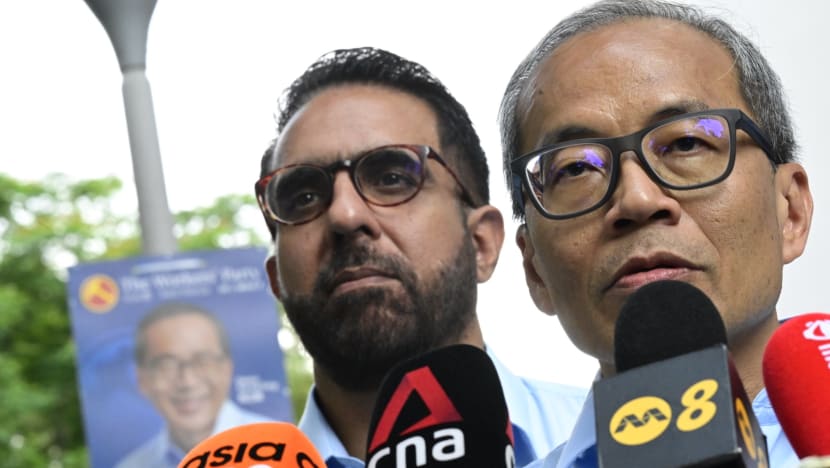SINGAPORE: Only elected opposition Members of Parliament (MPs) can “pressure and push” the government, said Workers’ Party (WP) chief Pritam Singh on Tuesday (Apr 29).
Speaking to the media at Hougang SMC ahead of Saturday’s General Election, Mr Singh pointed out that Non-Constituency Members of Parliament (NCMPs) have no voters or residents to solicit feedback from.
“They don’t have an office under a block in the constituency where they have worked at, and essentially this is where the PAP wants to keep the opposition,” said Mr Singh of the ruling People’s Action Party.
“They don’t want elected opposition MPs and I know why, because only an elected opposition MP can pressure and push the government.”
Related:
GE2025: Opposition never mentions having alternative voices in parliament is ‘guaranteed’, says Indranee
He was responding to comments by Minister in the Prime Minister’s Office Indranee Rajah at a Monday rally, on how opposition parties often urge voters to support them in the name of bringing alternative voices into parliament – but rarely acknowledge that such voices are already “guaranteed”.
“They make it seem as if it is a binary choice, as if voting PAP means that there won’t be opposition voices in parliament. But that’s not true … and it was the PAP that made sure of that.”
Ms Indranee was referring to the NCMP scheme, which was introduced to ensure a minimum number of opposition members in parliament.
If fewer than 12 opposition members are voted in after an election, the “best losers” from among the opposition candidates are declared elected as NCMPs, to bring the total opposition figure in parliament to 12.
An NCMP, who does not represent any constituency, was previously not entitled to vote on matters such as supply Bills, money Bills, Constitutional amendments, motions of no-confidence in the government and motions to remove the president from office.
But the constitution was amended in 2016 to give NCMPs the same voting rights as elected MPs.
Mr Singh on Tuesday described NCMPs as “a function of what had transpired after certain important political changes that happened in Singapore in 1988”.
“At that point, there was a cacophony of voices who wanted more opposition in parliament, and I think it was almost like a checking mechanism to make sure the momentum was slowed down,” he said.
“But make no mistake about it, you need elected opposition MPs in parliament. If you want them to speak up faithfully and to be connected to the ground, rooted to the ground; they have to be elected into parliament.”
In 1984, then-Prime Minister Lee Kuan Yew proposed amendments to the Constitution and the Parliamentary Elections Act to allow representation of a minimum of three opposition MPs in parliament.
Mr Lee argued that having NCMPs would help younger Singaporeans, who had missed out on the politics of early independence in the 1950s and 1960s, learn about what the opposition can do.
Opposition parties were however critical of the proposal, which they described as a backdoor into parliament. They argued that the scheme was a ploy by the PAP to dissuade people from voting for the opposition.
Some PAP backbenchers also criticised the scheme, saying it diminished the democratic process and that the opposition should earn their seats.

But there were some who felt the scheme offered the best of both worlds, as the NCMPs could be in parliament without having to look after a constituency.
The proposed changes were passed in parliament and took effect in August 1984.
Following the GE in December 1984, opposition…
Loading PerspectiveSplit analysis...









